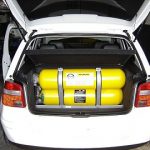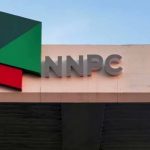Dangote Petroleum Refinery has taken a major step toward transforming Nigeria’s energy landscape with the arrival of 4,000 brand-new Compressed Natural Gas (CNG) powered trucks in Lagos. The vehicles, unveiled on Saturday through the company’s official X page, will drive the refinery’s nationwide fuel distribution programme set to launch on August 15.
The video accompanying the announcement captured the vessel berthing at the port, with cranes unloading the trucks onto Dangote’s base. A sweeping aerial view revealed hundreds of the gleaming new vehicles arranged in formation, underscoring the scale of the operation.
“We are delighted to receive 4,000 brand-new CNG trucks as part of our bold distribution initiative, championing cleaner energy and more efficient transportation across Nigeria and beyond,” the company stated.
This delivery is part of Dangote’s N720 billion investment programme aimed at revolutionizing Nigeria’s downstream petroleum sector by directly supplying petrol, diesel, and aviation fuel across the country. The strategy will bypass traditional distribution bottlenecks by delivering refined products straight from the refinery to filling stations, industrial plants, and large-scale fuel consumers—cutting out middlemen and reducing logistics inefficiencies.
Earlier reports from MSME Africa noted that the refinery’s distribution initiative could absorb over N1.07 trillion annually in fuel transport costs, a shift projected to save Nigerians more than N1.7 trillion each year by lowering overall energy expenses.
Beyond fuel delivery, the programme is expected to directly benefit more than 42 million Micro, Small, and Medium Enterprises (MSMEs), revive dormant filling stations nationwide, and create over 15,000 new jobs in the logistics value chain.
The new fleet positions Dangote Refinery to meet Nigeria’s daily demand for refined products—estimated at 65 million litres, comprising 45 million litres of Premium Motor Spirit (PMS), 15 million litres of diesel, and 5 million litres of aviation fuel.
Powered by cleaner-burning CNG, the trucks are also expected to reduce emissions and align with the Federal Government’s broader agenda to promote environmentally friendly energy alternatives.
Stakeholders including the Presidency, the Independent Petroleum Marketers Association of Nigeria (IPMAN), and energy experts have lauded the initiative, describing it as a transformative step toward reducing fuel distribution costs, stabilizing pump prices, and modernizing Nigeria’s petroleum value chain.










